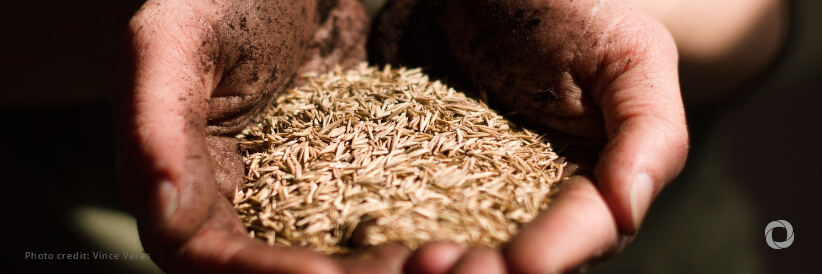QU Dongyu, Director-General of the Food and Agriculture Organization of the United Nations (FAO) underlined the importance of aquatic food systems for food security and poverty eradication in a key event paving the way for the UN Ocean Conference starting later this month in Lisbon.
The global impacts of the climate crisis, conflicts and humanitarian emergencies, the COVID-19 pandemic, and soaring food and fuel prices are hitting the poorest the hardest – increasing the number of hungry people and putting livelihoods at risk, Qu said in opening remarks at the “Blue Talks” organized by the Permanent Representations of Kenya and Portugal to the Rome-based UN agencies.
“To address these challenges, we need to urgently transform our agrifood systems to be more efficient, more inclusive, more resilient, and more sustainable,” the FAO Director-General said, adding, “sustainable aquatic food systems are a vital part of this transformation.”
The event was a curtain-raiser for the UN Ocean Conference, taking place from 27 June to 1 July, and co-hosted by Kenya and Portugal.
After remarks by Kenyan Ambassador and Permanent Representative to FAO, Jackline Yonga, and Portugal’s Ambassador and Permanent Representative to FAO, Pedro Nuno Bártolo, the “Blue Talks” event also heard video messages from Portugal’s Foreign Minister João Gomes Cravinho and Peter Thomson, the United Nations Secretary General’s Special Envoy for the Ocean. The key segment of the event was a roundtable on “Scaling up ocean action” to raise awareness and mobilize high-level participation at the United Nations Ocean Conference.
The FAO Director-General said the significant role that can be played by aquatic food systems – including food from the Ocean – in food security and nutrition and poverty eradication, was at the core of FAO’s Programme Priority Area on “Blue Transformation” which aims to make healthy, nutritional aquatic food available to all.
Supporting the delivery of the FAO Strategic Framework 2022-31, Blue Transformation focuses on the responsible and sustainable use of aquatic resources, while protecting the environment, Qu said.
Blue Transformation contributes directly to the Sustainable Development Goals and supports Members to integrate aquatic foods into food security and nutritional strategies at the national and global levels.
FAO supporting Ocean Conference
Qu said FAO has been closely supporting the UN Ocean Conference as it represents an important opportunity to promote the transformation of aquatic food systems.
The event will also highlight the growing importance of aquatic foods as a vital source of nutritious food, and their critical role in supporting and improving livelihoods, a key part of the FAO mandate and objectives of better production, better nutrition, better environment, and a better life for all, leaving no-one behind.
“We are also highlighting how our expertise, tools, and practices can help Members maximize the contribution of aquatic foods to food security, nutrition, healthy diets and creation, and protection,” Qu said.
FAO has already submitted 12 Voluntary Commitments to the Conference worth over $140 million, focused on ocean health and transformed aquatic food systems.
Qu will lead the FAO delegation to the Ocean Conference and will speak at the interactive dialogue on fisheries sustainability. During a special event at the Conference, FAO will also launch the latest version of its biennial flagship report “The State of World Fisheries and Aquaculture 2022”.
FAO’s delegation will participate in plenary sessions and in over 20 side events covering a wide range of topics including ocean restoration, aquaculture development, small-scale fisheries, and the role of aquatic foods.

